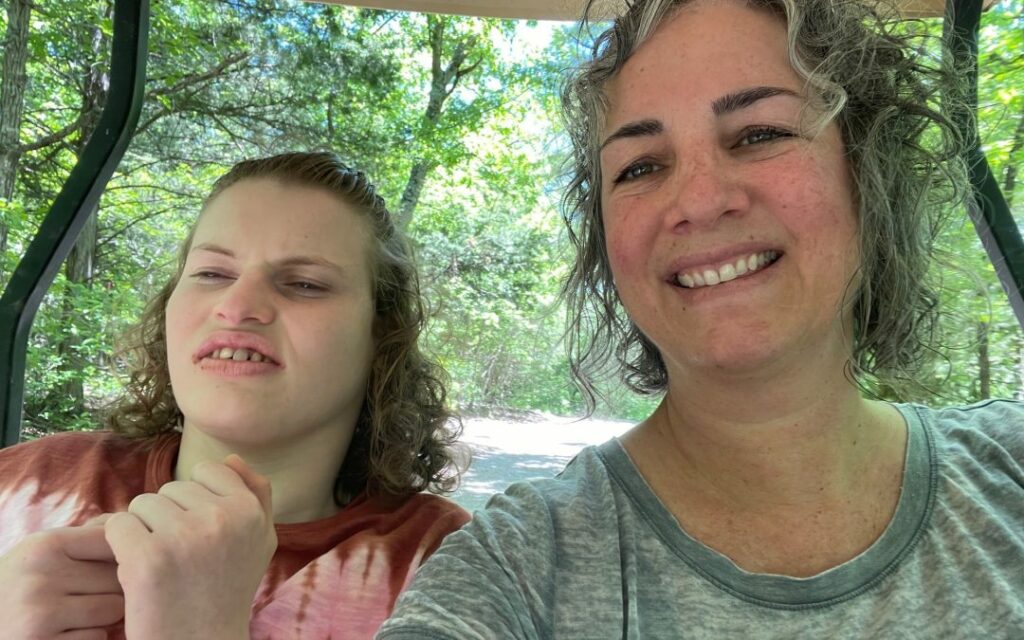
Ephesians 3:16
I pray that out of his glorious riches he may strengthen you with power through his Spirit in your inner being.
Caregivers who develop a sense of their purpose see several benefits. For example, when we understand the reasons why we are designed for and called toward a specific need, we are better able to stay focused on our goals and stick with them. A sense of purpose also helps us remember why we are valuable — and vulnerable. No important work will come without obstacles. Recognizing from the outset that hardship will come is part of what reminds us why we are a valued contributor in the first place. This stirs our compassion and reassures us that there are brighter days ahead. We’re spurred on to persevere and remain committed.
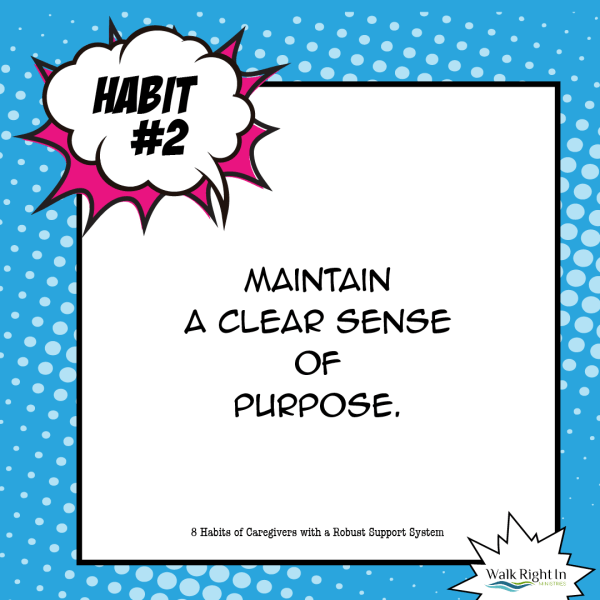
My own sense of purpose as a caregiver started from my aspirations to be a mom and my natural inclinations as a nurturer. But when we became parents of a child with disabilities, I needed more than that. I had questions for God about the much bigger picture and my role in it.
Our daughter, Carly, has complex needs that require a lot of us. Without a clear sense of God’s unique and valuable role for me in caring for her, I don’t believe I would be able to sustain the energy the situation demands. I certainly would not be anchored by a sense of peace and rest in my soul after doing it for more than two decades unless I recognized some Divine purpose and calling in this lifestyle.
It doesn’t take much for disability issues to become consuming for me and for our family. So, understanding what really drives me helps keep my emotional and logistical boundaries clear too. When my boundaries aren’t tended and my limits aren’t confessed, I start to develop an unrealistic sense of who I am and what my role is. I give my contribution too much importance and get prideful, restless, angry, or bitter. That’s when I’m prone to emotional and spiritual burnout too. It’s important for me to keep in perspective what my purpose is — and what it is not.
There are times when I wrestle with my insufficiencies, questions, and fears. I want to give Carly the best possible therapies and nutritional interventions, for example. I want her seizures, sleep, and anxiety under control. I want to help my family manage our stress well. Knowing my purpose is not to fix or prevent all these problems is incredibly freeing! But I really must keep taking my thoughts back to the truth of Who I belong to and what I’m called for. This keeps me from running aground on the deserted wasteland of woe.
We are human, but we don’t wage war as humans do. We use God’s mighty weapons, not worldly weapons, to knock down the strongholds of human reasoning and to destroy false arguments. We destroy every proud obstacle that keeps people from knowing God. We capture their rebellious thoughts and teach them to obey Christ.
2 Corinthians 10:3-5
When identifying your purpose, consider your reasons for caregiving and your reasons for needing help.
What are your reasons for being in a caregiver role?
- Your love for a child or spouse may inspire you.
- You may have a vision for helping others experience a certain quality of life or achieve their full potential.
- Perhaps you feel called by God to serve someone who needs help for a season or for a lifetime.
- You may recognize personal strengths and gifts that make you uniquely equipped to help.
- Your value of life and relationships may guide you.
Consider these scenarios:
- Jona feels her purpose is to protect her daughter from things that may harm her and fix the things that limit her.
- Jack sees his purpose being to support his son in achieving his potential in health, development, faith and friendships.
How might each of these parents experience life within their sense of purpose? Are their goals likely to empower them or create fear and added pressure? Are their aspirations reasonable? What might their purposes say about the source of their ultimate reliance? Who does Jona seem to trust more — God or herself? Does Jack’s purpose leave room for compassion in himself and others?
What are your reasons for needing a support system?
Maintaining a clear sense of purpose for having a support system frees you from guilt and fear about cultivating those supports.
- Recognizing the long-term nature of your role may help you see the need to pace yourself with adequate help.
- Appreciating that others need a balance of your time too (e.g., siblings, friends, spouse) can move you to prioritize help.
- Prioritizing a team of supporters is good for you and it is good for your family.
It is worth noting here that the vision for the entire system springs, to some degree, from the primary caregiver. Caregiving parents will often form the foundation of purpose that flows to the rest of the family and sets a tone for other resources that make up the team. I’ll discuss more about this vision opportunity in a future post about cultivating a collaborative support system.
The truth is, our ultimate encouragement comes from knowing that God holds the purpose, not us.
Many are the plans in a person’s heart, but it is the Lord’s purpose that prevails.
Proverbs 19:21
We are vessels of His grace and power so that His greatness will be made known — not our own greatness. Yes, I would like people to think well of me. To be honest, I would like to think well of myself too. But what really matters is what God thinks of me — and how he enjoys us together, sharing life and love in the broader community. God thinks me worthy, capable, and valued in a life role I never expected. It is a role with Kingdom purpose. His reasons for placing me — and you — in this caregiving season are countless, mysterious, and prevailing.
You, too, are worthy, capable, highly valued and Kingdom-purposed for such a time as this.
In his book, The Truest Thing About You, David Lomas explains, “You can’t become who you are alone. You need people. The truest thing about you isn’t all about you. It’s about God, and it’s about others.”
There is something powerfully freeing in knowing all of this caregiving is about something far bigger than an one of us. The privilege and adventure of walking out a hard life within intimate relationship with Jesus and aligned with His purpose is deeply satisfying.
It is a wonderfully driving force behind how and why we live, love and serve each day.
“But I have raised you up for this very purpose, that I might show you my power and that my name might be proclaimed in all the earth.”
Exodus 9:16
RELATED: 8 Habits of Caregivers with a Robust Support System
RELATED: Six Caregiving Advocacy Tips I’m Learning All Over Again
If you’re needing extra confidence, encouragement, or tools to assist you in finding your caregiving groove, please reach out for professional help. Walk Right In Ministries is available with personalized education, consulting services, counseling, and referrals to meaningful resources. Our team collaborates with a broad network of local and national organizations dedicated to strengthening churches, communities, and families when disabilities are involved. Fill out the Interest Form or visit us at WalkRightIn.org to learn more.
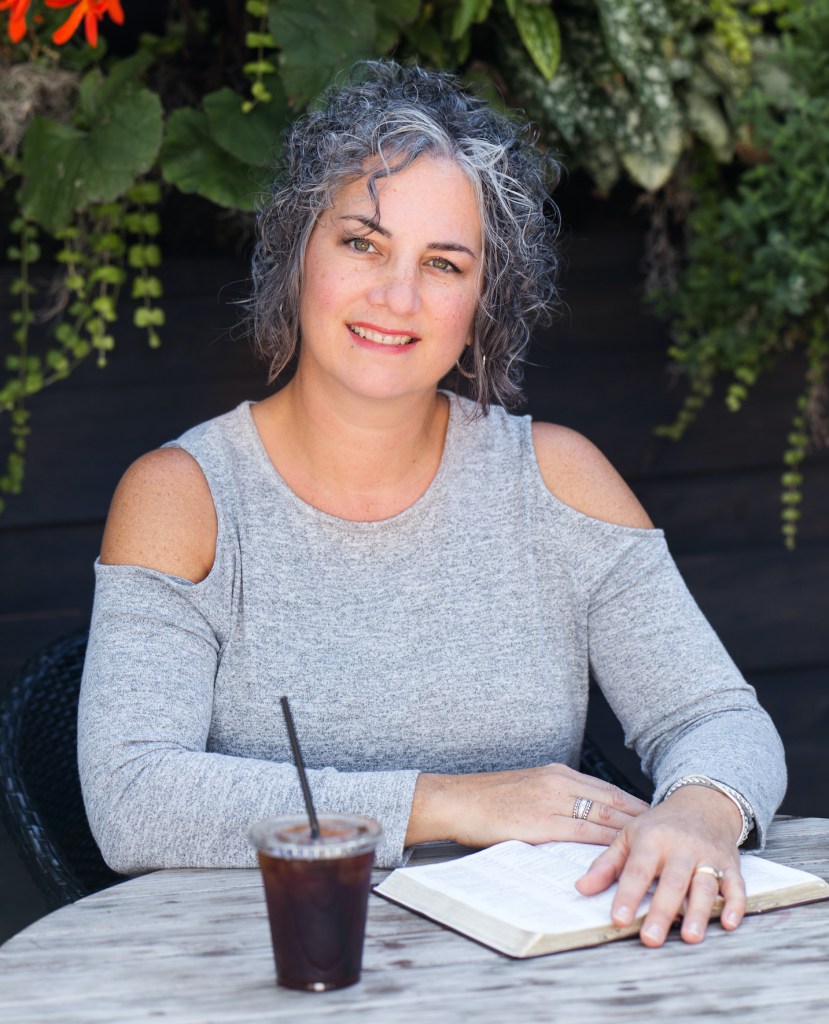
Lisa Jamieson is a caregiver consultant, pastoral counsellor and author of popular books and Bible studies including Finding Glory in the Thorns and Jesus, Let’s Talk. Lisa and her husband, Larry, live in Minnesota with the youngest of their three grown daughters, Carly, who has Angelman Syndrome. Together, the Jamiesons founded Walk Right In Ministries in 2008, a non-profit organization building faith and community with special needs families.


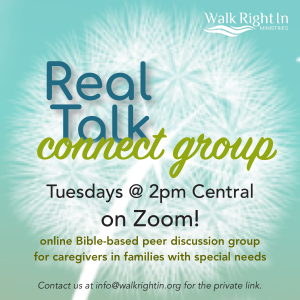

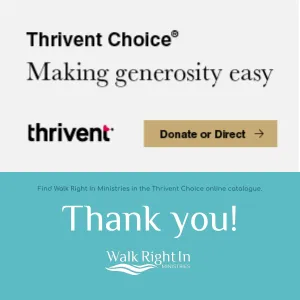


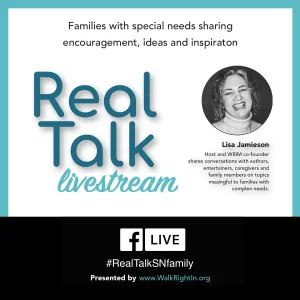
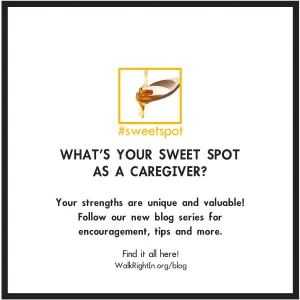

0 Comments